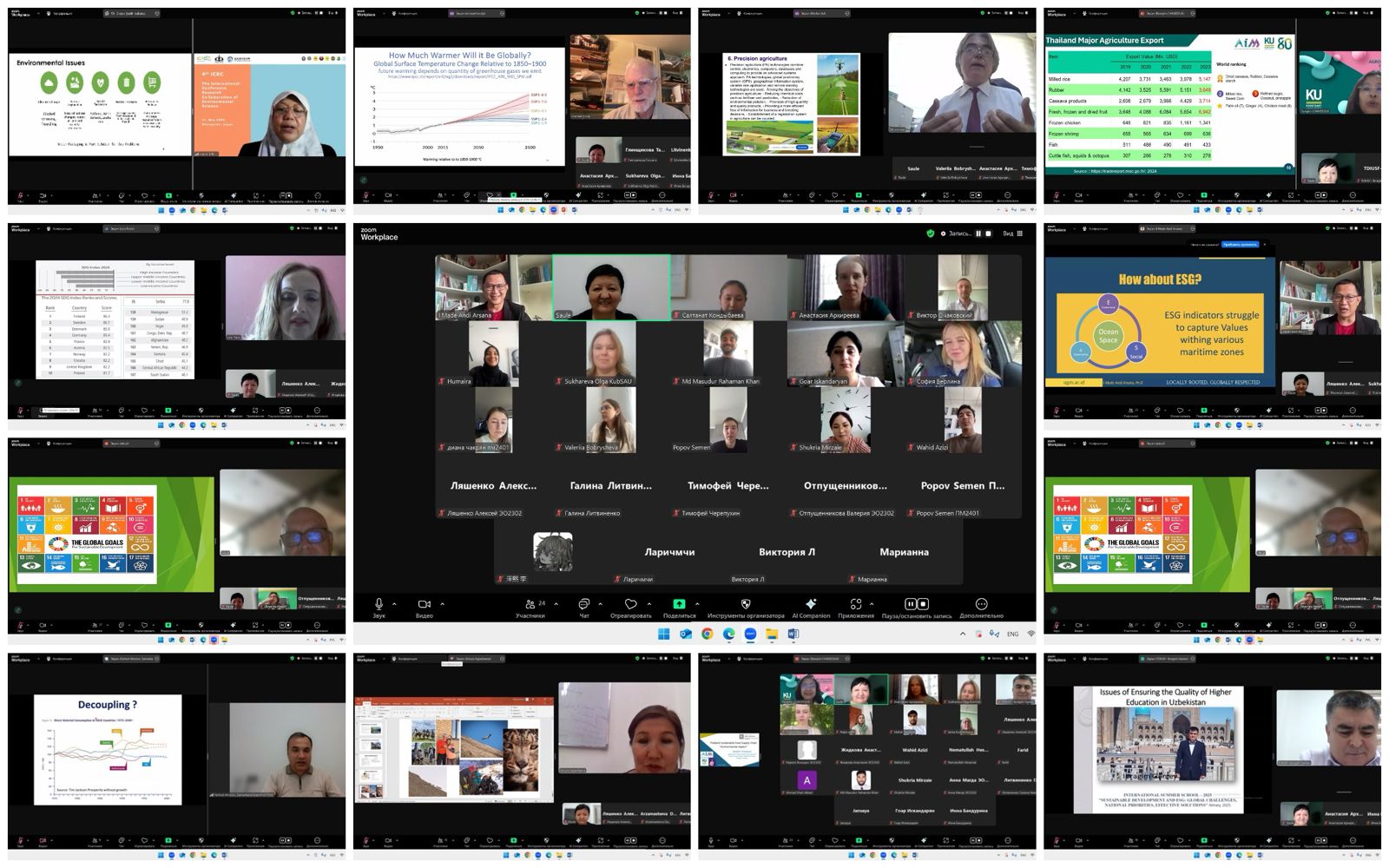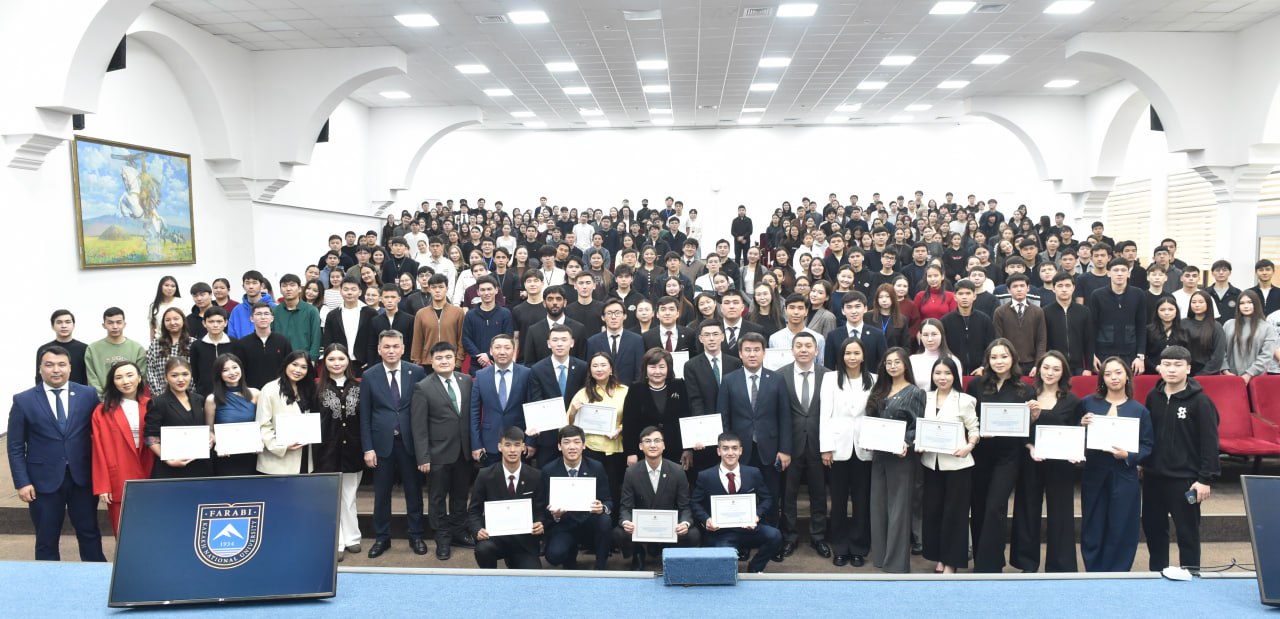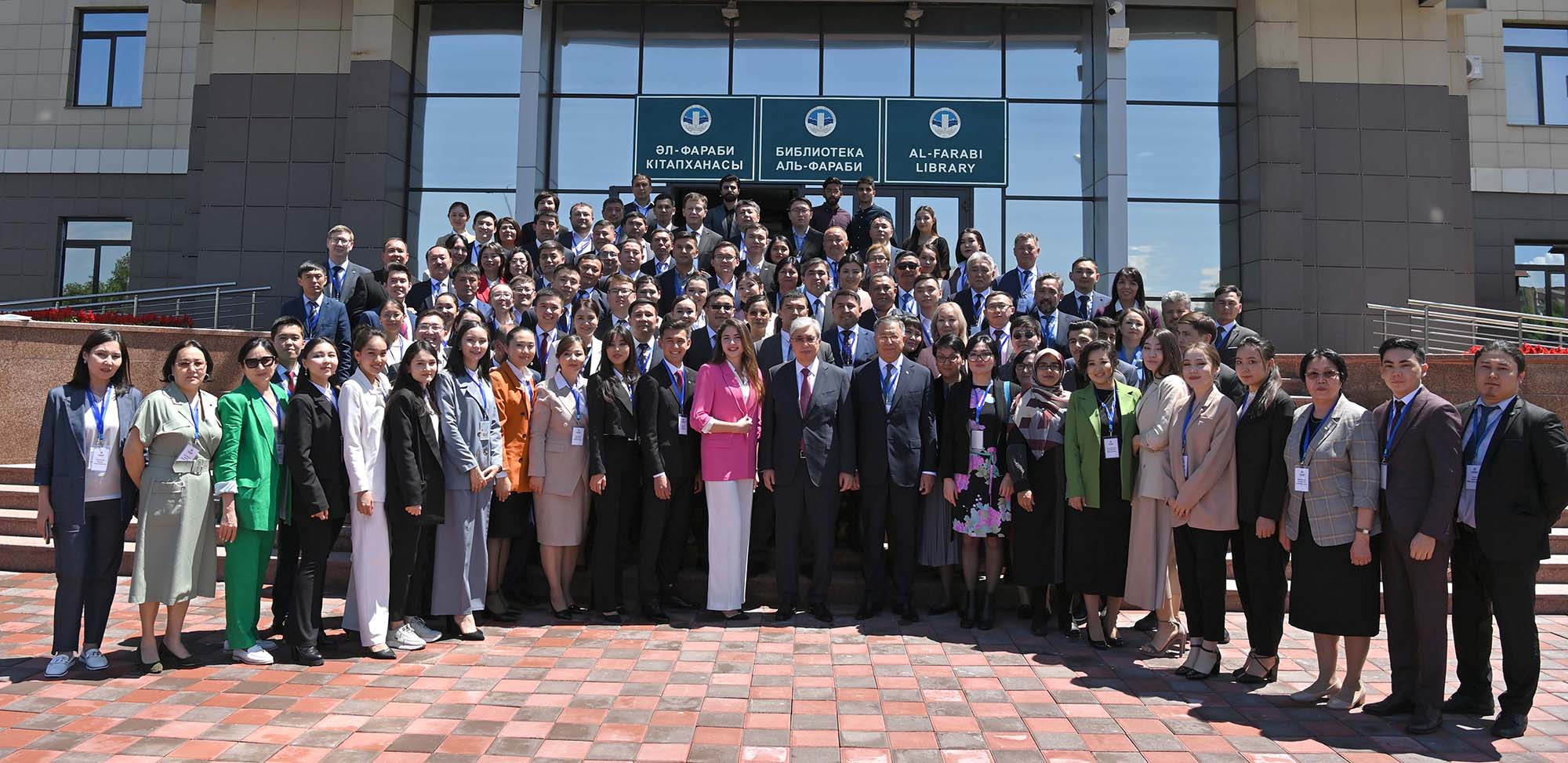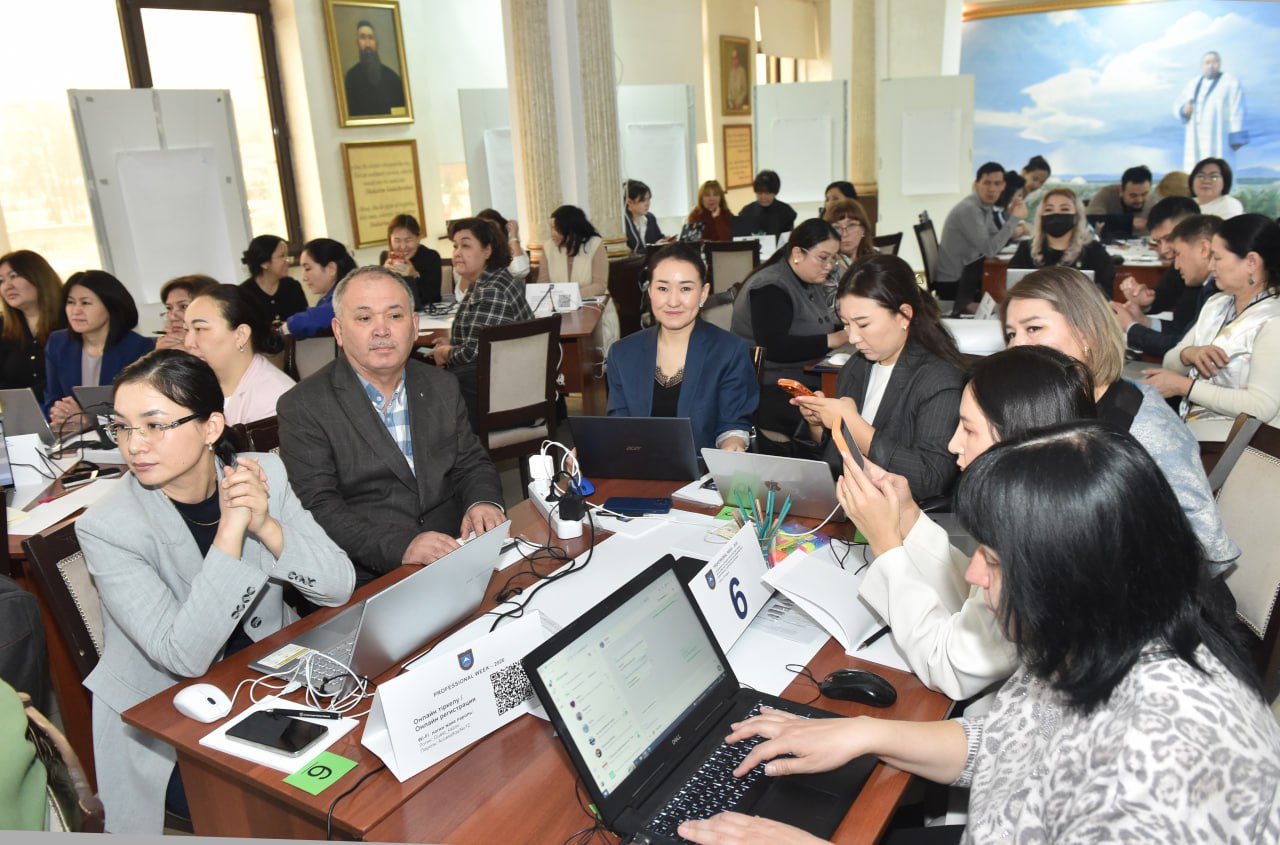- Main
- News
- The International Summer School 2025 has completed its work, within the framework of the SDGs
The International Summer School 2025 has completed its work, within the framework of the SDGs

International Summer School -2025 “Sustainable Development and ESG: Global Challenges, National Priorities, Effective Solutions” held by the Department of “Economics” of the Higher School of Economics and Business of Al-Farabi Kazakh National University successfully completed its work in an online format.
This year, the lecturers at the school were professors from the USA- Michael Brody (American University), Thailand - Ravipim Chaveesuk (Kasetsart University), Waldemar Kozlowski (University of Warmia and Mazury in Olsztyn), Indonesia - Yosini Deliana (Universitas Padjadjaran) and I Made Andi Arsana (Universitas Gadjah Mada), Serbia - Lela Ristic (University of Kragujevac), Turkey -Mevlut Gul (Isparta University of Applied Sciences), Uzbekistan - Ahrorov Farhod and Ganiev Ibragim (Samarkand branch of Tashkent State University of Economics), Kyrgyzstan - Saparbaeva Ainura (Osh State University) and staff of the Department of “Economics” of the Higher School of Economics and Business of KazNU. The International Summer School brought together participants from Russia, students and postgraduates of KazNU.
The International Summer School program covers almost all 17 SDG goals: sustainable lifestyles (3) and the economic growth dilemma (8), data analysis using economic and mathematical methods, building research models (12); quality assurance issues in higher education towards sustainable development (4); the role of green packaging in addressing ESG issues (12); implementing SDGs and ESG on land and at sea (6, 14); ecological economy (15) and national policy, doing business and ESG trends in Kazakhstan (8); sustainable development in modern conditions: global challenges and national priorities (8, 9); human resources sustainability and its impact on business development (4, 5); climate change (13) and sustainable agriculture (2), improvement of state support measures (11) aimed at agricultural development, development of renewable energy in Kazakhstan based on global trends (7); Thai sustainable agro-food chain (7); the impact of ESG on investment decisions (9, 16) and sustainable development: the future and challenges of tourism (16, 17) in Central Asian countries.
The International Summer School serves as a platform for productive interaction between scientists and students, facilitating the exchange of ideas and joint work on solutions to pressing global challenges. During the study of sustainable development topics and ESG principles, participants not only analyzed global trends, but also developed applied strategies focused on national realities.
Leading experts and school coordinators help participants to gain a deeper understanding of the complex aspects of sustainable practices, explore innovative methods and comprehend the growing role of ESG in shaping a sustainable future.



